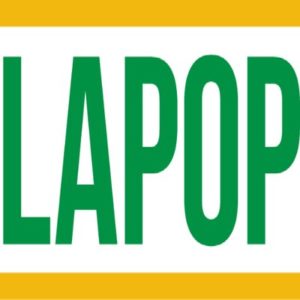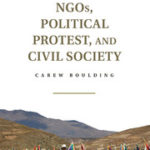Evo Morales, the exiled former president of Bolivia, said he is willing to sit out the country’s next presidential election if he can finish the last few months of his term and, together with the opposition, name a new electoral authority to oversee a fresh vote to choose a new leader, the Wall Street Journal reports (HT:FDD).
- The military wasn’t the only force pushing Morales out: Much of the debate over Morales’s exit has centered on whether it was a de facto military coup. Those who see it as a coup note that the head of the military announced, on television, that Morales should resign. They also note the police decided to refuse orders to quell the anti-Morales protesters….But this interpretation misses something important: Many organizations and groups wanted Morales to step down. That includes major labor unions, (above), even those that had traditionally supported him, as well as civic groups, student organizations and more.
 Indigenous Bolivians were increasingly divided over Morales: Another portrayal of the protests relies on a similar oversimplification: that it’s a battle between indigenous Bolivians and everyone else. In this telling, that indigenous supporters of Morales are blindly loyal, while his opponents are elites willing to bypass the democratic process to get rid of him….. Our research finds indigenous groups increasingly divided over Morales. According to data from the Latin American Public Opinion Project (right), support for Morales among indigenous groups had declined to 58 percent in 2018, down from 71 percent in 2010. Similarly, in a 2016 referendum on whether Morales should be allowed to run again for reelection beyond the constitutional limit of three terms, nearly 50 percent of indigenous people said no….
Indigenous Bolivians were increasingly divided over Morales: Another portrayal of the protests relies on a similar oversimplification: that it’s a battle between indigenous Bolivians and everyone else. In this telling, that indigenous supporters of Morales are blindly loyal, while his opponents are elites willing to bypass the democratic process to get rid of him….. Our research finds indigenous groups increasingly divided over Morales. According to data from the Latin American Public Opinion Project (right), support for Morales among indigenous groups had declined to 58 percent in 2018, down from 71 percent in 2010. Similarly, in a 2016 referendum on whether Morales should be allowed to run again for reelection beyond the constitutional limit of three terms, nearly 50 percent of indigenous people said no….
 Morales’ legacy is complicated: Bolivians’ feelings about Morales are mixed. Many see him as both the best and worst president in recent history. ….At the same time, many indigenous groups grew frustrated with Morales for favoring natural gas extraction and expanded mining, and because he did not significantly expand indigenous land rights or honor those communities’ constitutional rights to be consulted about infrastructure and extraction projects that affected them. Credible accusations of election fraud against Morales, including irregularities in the vote count, precipitated this crisis — and these accusations are part of long-term concerns about corruption in his administration. Our research shows that, as early as 2010, indigenous people who endured corruption (like being asked to pay a bribe) were much less likely to support Morales. …RTWT
Morales’ legacy is complicated: Bolivians’ feelings about Morales are mixed. Many see him as both the best and worst president in recent history. ….At the same time, many indigenous groups grew frustrated with Morales for favoring natural gas extraction and expanded mining, and because he did not significantly expand indigenous land rights or honor those communities’ constitutional rights to be consulted about infrastructure and extraction projects that affected them. Credible accusations of election fraud against Morales, including irregularities in the vote count, precipitated this crisis — and these accusations are part of long-term concerns about corruption in his administration. Our research shows that, as early as 2010, indigenous people who endured corruption (like being asked to pay a bribe) were much less likely to support Morales. …RTWT
Carew Boulding is associate professor of political science at the University of Colorado and the author of “NGOs, Political Protest, and Civil Society” (above – Cambridge University Press, 2014). Raymond Foxworth, PhD, is vice president of the First Nations Development Institute and an expert on indigenous politics. Calla Hummel is assistant professor of political science at the University of Miami and author of several articles on Bolivia. @CallaHummel Jami Nelson Nuñez is assistant professor of political science at University of New Mexico and the author of several papers on local service delivery and the politics of development. V. Ximena Velasco-Guachalla is a PhD candidate at the University of Colorado and studies corruption and political protest. @vximenavg

 On Nov. 10, Morales, Bolivia’s first indigenous president,
On Nov. 10, Morales, Bolivia’s first indigenous president, 





